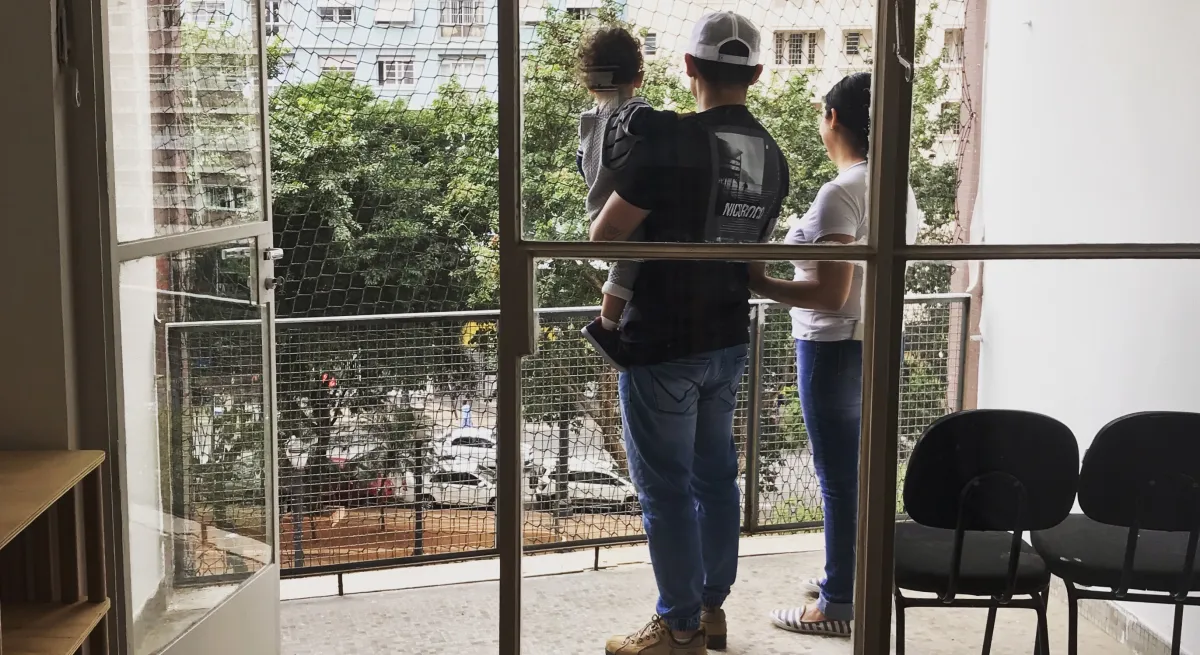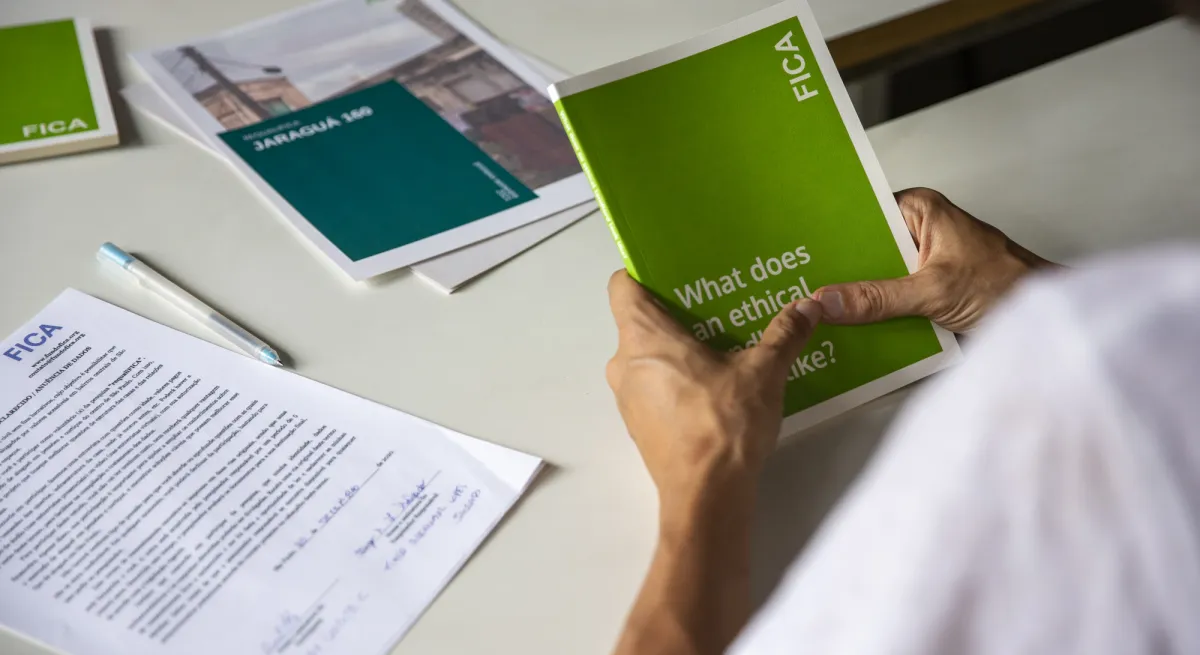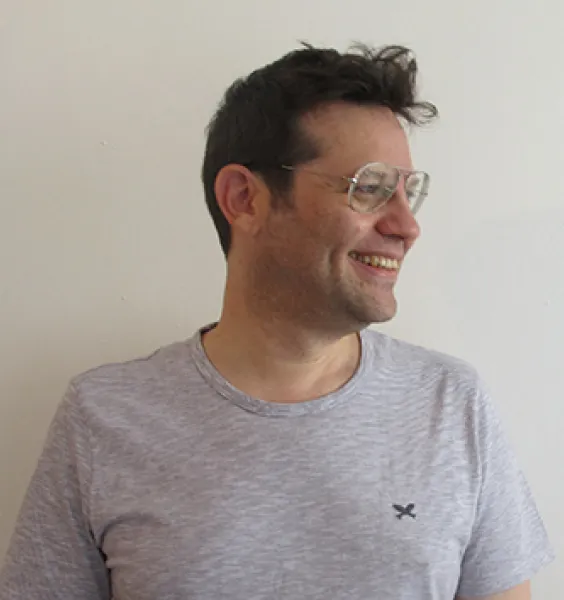FICA(Fundo Imobiliario Comunitariopara Aluguel) designs alternative solutions to provide low-income groups with affordable housing. Fica’s co-founder and director Renato Cymbalista shares why, through their model, everybody across the wealth pyramid wins.
Renato, you are an architect and urban planner. What’s the role of housing in the prosperous development of a community?
In our cities 70 to 80% of the land is dedicated to housing. With such a ratio, it is clear that how we distribute, and design housing is key for the prosperity - or the lack of prosperity - of a community.
In cities that are compact, accessible, with amenities in walking distance, with diverse neighbourhoods, for example, people use cars less and have shorter commutes. In sprawling cities where people need to drive more, there is an obvious impact on health and quality of life. There’s a direct relationship between prosperous communities and a responsible way to plan cities and distribute housing.

You co-founded FICA in São Paulo, Brazil. What does the situation look like in your city?
São Paulo is a megacity with over 20 million inhabitants. Commuting is a highly critical issue. Most of the focal points for its inhabitants – jobs, services, infrastructures – are concentrated in the city centre. Housing in central areas allows access to better public schools, cultural centres, libraries, parks and much more, which means access to opportunities for economic and social development. With that comes also a more diverse social network which increases social mobility.
Living in the outskirts can easily mean a two-to-three-hour commute to the city centre – one way. This impacts the real estate market: the areas closest to the better paid jobs become very expensive. Living in a well-located area is a privilege for very few. Those who cannot afford it, pay with their time, quality of life and – ultimately – missed opportunities. If you think that in São Paulo 1% of landowners own 45% of properties, it is clear how opportunities remain exclusive for very few. Informality is also a big issue. At least 30% of the city’s housing was built without authorisation – so-called informal settlements.

How is FICA tackling São Paulo’s housing and inequality problem?
FICA is a non-profit organisation that we established in 2015. In Portuguese, FICA means ‘stay’, conveying the sense of stability that we want to provide to the groups that we address with our work. Our strategy is to acquire extortive or potentially extortive real estate in central São Paulo and repurpose it into affordable housing at cost price. Our work starts with the acquisition of properties. In some case we receive them through donations, like the first apartment that we managed where a family with three children has been living since 2019. In other cases, we buy through crowdfunding, or we rent at a low price and sublet. Then we renovate, select, and support the tenants, take care of administration and maintenance.
So far, we have raised over R$ 8 million (€ 1,425,000). We are currently handling eight properties, which are now protected from speculation and where 29 families are living safely, paying rents up to 60% lower than the market price. Recently, we received donations of R$ 3,300,000 to manage a housing project for low-income families, and we are negotiating a purchase of a building worth R$ 4,000,000 by a family who asked us to develop a housing centre for low-income students. To onboard individuals, families or institutions interested in investing in affordable real estate, we have developed an impact investment mechanism, delivering a return of 4% per year over 10 years.
We acknowledge the trust deposited on FICA by Julius Baer Foundation through its Wealth Inequality Initiative.
For me this is a powerful example of how strategic philanthropy can be a game-changer. I consider this award a share victory.
Congratulations on receiving the 2023 UN-Habitat Scroll of Honour Award
"Due to the Julius Baer Foundation's generous support, FICA went in a few years from a unique project with just one apartment to an award-winning NGO, counting with around 40 apartments and offering decent housing for around 100 people and inspiring other groups in the Country. We acknowledge the trust deposited on FICA by the Foundation through its Wealth Inequality Initiative, it was not an obvious decision back then. For me this is a powerful example of how strategic philanthropy can be a game-changer. I consider this award a shared victory".
This prestigious accolade celebrates initiatives and individuals driving positive change in sustainable urbanization and enhancing the quality of urban life. Out of more than 80 nominations worldwide, FICA stood out as an exemplary initiative aligning with Sustainable Development Goal 11: Making cities and human settlements inclusive, safe, resilient, and sustainable. This award is a testament to FICA's unwavering commitment to sustainable urbanization and inclusive cities. Congratulations to FICA for their outstanding achievement. Wealth Inequality Initiative by Julius Baer Foundation is so proud to support FICA and make this success possible!


Renato Cymbalista is an architect and planner.
A professor at the School of Architecture and Urbanism of the University of São Paulo, Renato Cymbalista is also a director and one of the founders of FICA, established in 2015. From 2012 to 2021 he was the president of Instituto Pólis, a São Paulo Based NGO and he sits on the board of Fundo Agroecológico and Frente Alimenta. Renato has curated the FICA pavillion for the Chicago Architecture Biennial and has edited, among other titles "What does an ethical Landlord Look Like" (FICA/ Anna Blume Editions) and "Acesso à terra para a agricultura justa" (FICA/Pistache Editorial).
About FICA and the Impact Investment Platform in Real Estate

See how FICA and the Julius Baer Foundation are developing a new model for sustainable funding of low-income rental housing.
